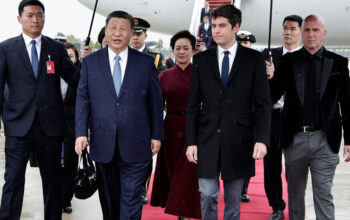
WASHINGTON — Congress is poised to force the Pentagon to study how it assesses allies’ will to fight, amid criticism from lawmakers that the U.S. government has regularly failed to make such assessments accurately.
A provision approved for inclusion in the Senate version of the annual defense policy bill would mandate a study by the Defense Department of how it judges the willingness of foreign militaries to fight their enemies.
In Ukraine, U.S. officials initially forecast that the Russians would take Kyiv, the capital, within a few days. In Afghanistan, some U.S. officials thought the Afghan military could hold together and continue to fight the Taliban after the American withdrawal. Both predictions were wrong.
The Pentagon has pushed back against accusations that it misjudged Ukraine, while acknowledging problems with its assessment of Afghanistan’s military. Intelligence officials have said errors in predicting the course of the Russian invasion were more a matter of overestimating the Russians than underestimating the Ukrainians.
Senator Angus King, the Maine independent who pushed for the provision to be included in the annual bill, said that the Pentagon and intelligence agencies had made errors in judging an ally’s willingness to fight, but that such assessments are far more difficult, and more subjective, than counting up tanks.
“I am not naïve enough to think that this is easy or straightforward,” Mr. King said. “What I do believe is it’s damned important and that we have to do a better job. Within one year we had two pretty straight up failures in the opposite direction.”
Lawmakers from both parties have echoed Mr. King’s views, but a Pentagon spokesman disputed the contention that the Ukrainians had been underestimated.

